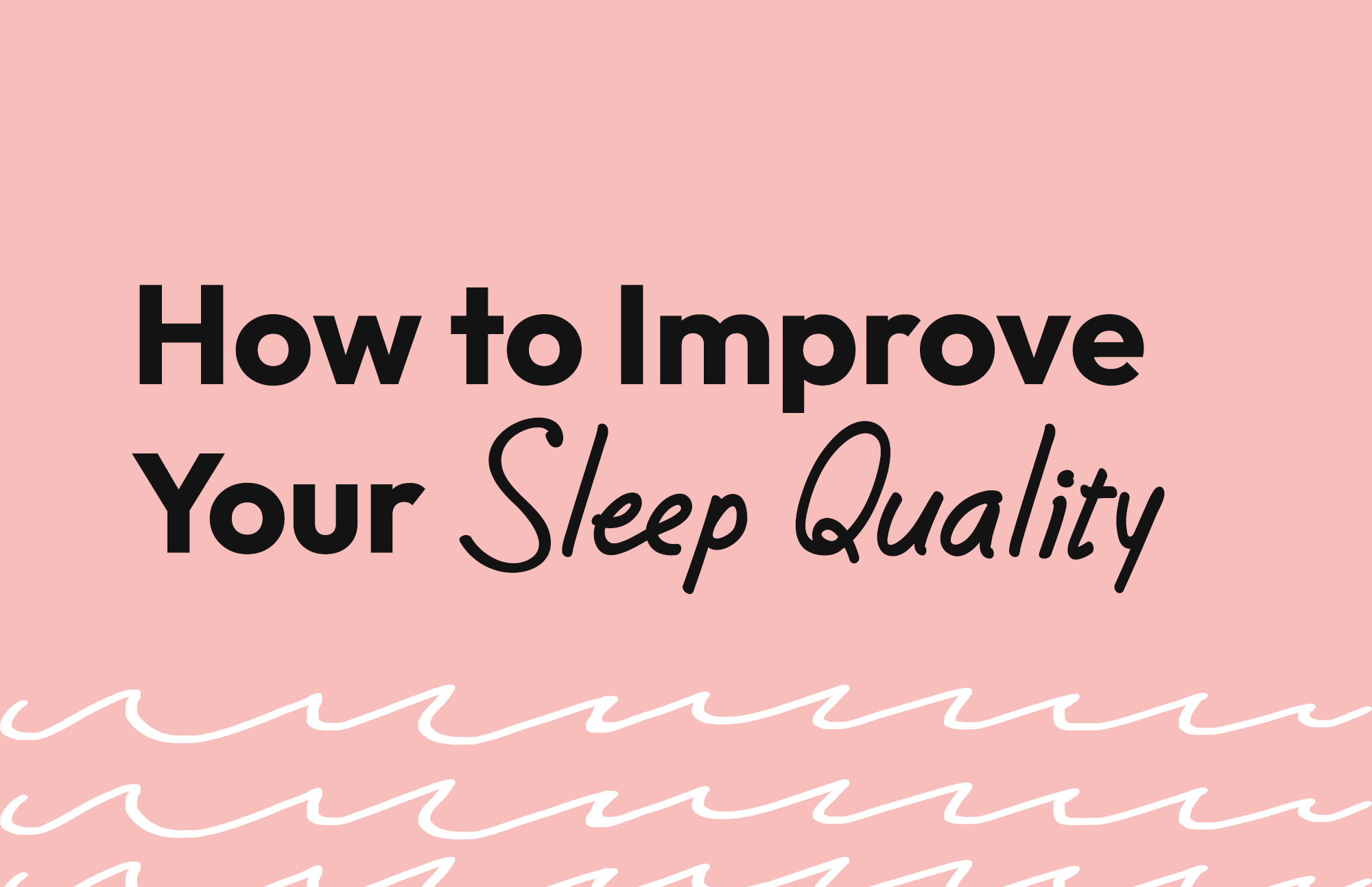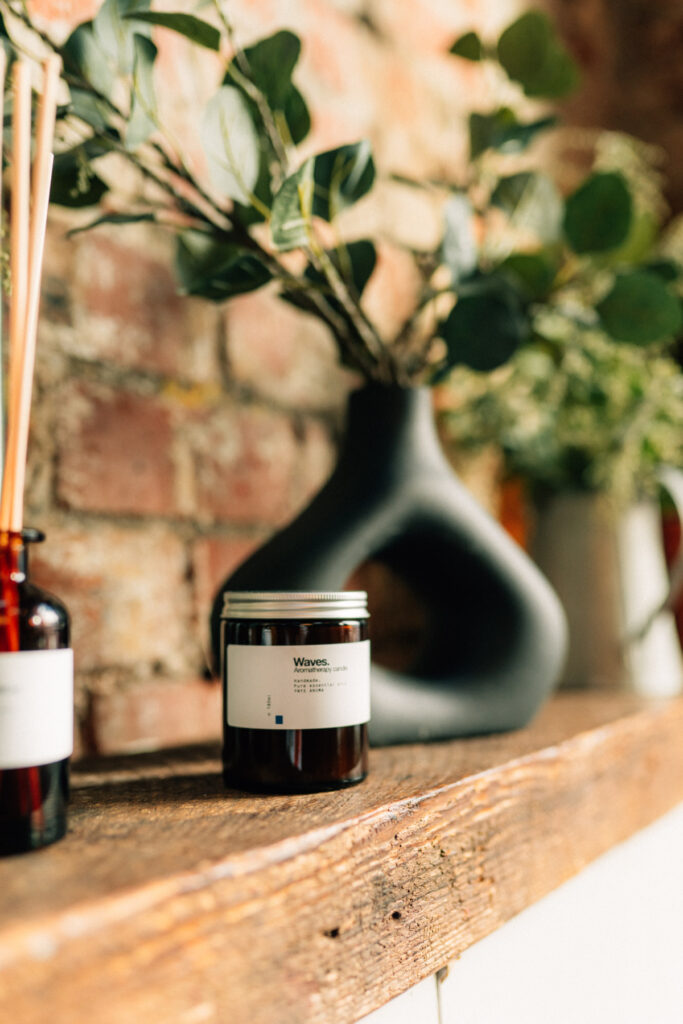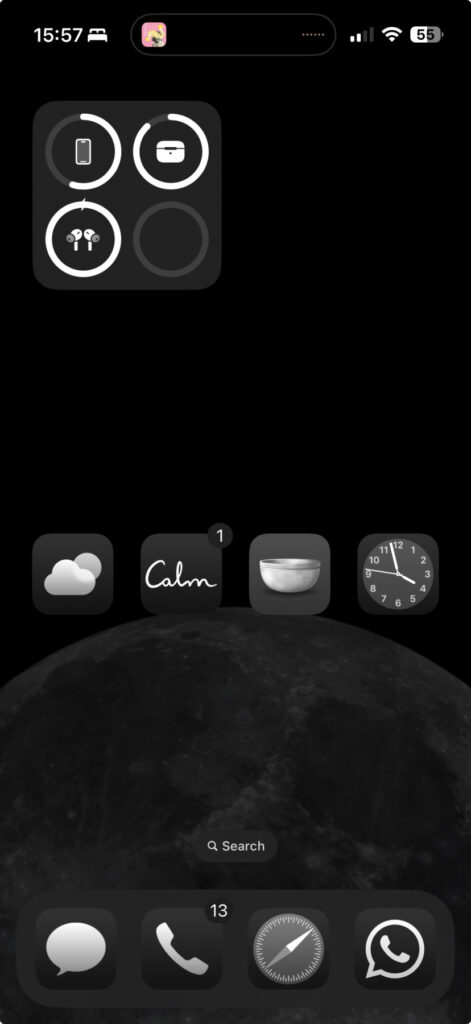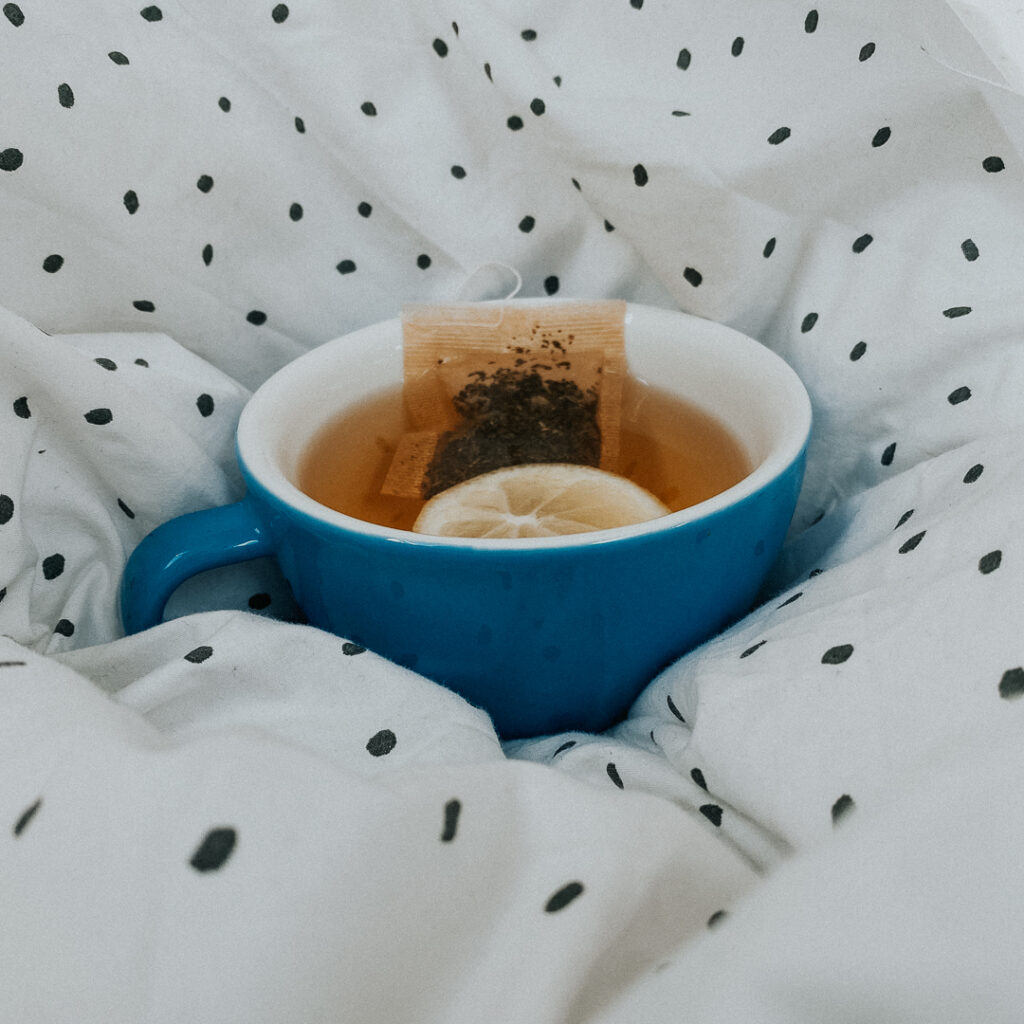How to Improve Your Sleep Quality
post by Si Martin

We all know that sleep is important. But how do you get better quality sleep? If you’re finding yourself lying awake at 2am, staring at the ceiling, running through every awkward thing you’ve ever said—this one’s for you.
Sleep is one of those foundational bits of self-care that makes everything else a little more manageable. So let’s explore some research-backed ways to improve your sleep quality, plus a few tips shared by our Instagram community that genuinely help.
Why sleep matters
Before we get into the how, let’s quickly touch on the why. Poor sleep quality has been linked to anxiety, depression, and increased stress levels. It can also make it harder to regulate your emotions, concentrate, or make decisions. Basically, when your sleep suffers, everything feels harder. So this is a lil reminder to check in with yourself if you’re feeling emotionally low. Have you had enough sleep? Enough *quality* sleep?
When you’re already struggling with your mental health, getting better sleep can be one of the most impactful changes you can make.
So here are a few ways to improve your sleep quality – with both science and lived experience to back it up. 🤝
1. Build a wind-down routine
Someone from our IG said the thing that helped them was: “Routine. Podcasts or certain noises. Lights off, just a noise to focus on and fall asleep to.” So let’s pick up on the routine aspect of that.
Having a consistent bedtime routine helps signal to your brain that it’s time to relax. This could be as simple as:
- Switching to low lighting an hour before bed
- Putting on calming music or a podcast
- Having a warm (not hot) shower or bath
- Using the same scent every night (we’ve got some stunnin’ aromatherapy bits in our store!)
Consistency is key: Going to bed and waking up at the same time every day—even on weekends—helps regulate your internal clock (called your circadian rhythm). And doing the same things each night before bed, helps to give your body & brain some little hints that it’s time to start winding down & go into rest mode.
2. Reduce screen time before bed
I know, I know. You’ve probably heard this one before, but the reason everyone keeps going on about it, is because it’s a biggie. The blue light from screens can mess with your body’s production of melatonin (that’s the hormone that makes you sleepy).
Try:
- Switching off devices 30–60 minutes before bed
- Keeping your phone out of bed and ideally, out of reach – I try to leave mine either on the other side of the room or a different room altogether!
- Putting your phone on airplane mode to remove the temptation to scroll (another solid suggestion from our IG community 🫶)
And look, I get it. Trying to do an evening without the phone to help stimulate you is hard. But maybe it’s worth trying to reading a book, or journalling, so you’re still engaged with something, but without that blue light whacking you in the face.
3. Try grounding yourself before sleep
If your brain goes into overdrive the second your head hits the pillow, grounding techniques can help you ease into sleep. (I feel this one extra hard. Every dumb thing I’ve ever said decides to pop up right as I’m trying to rest.)
Someone on IG mentioned counting backwards from 100 — this can act as a kind of mental distraction from racing thoughts, which I love.
You could also try:
- Progressive muscle relaxation (tense and release each part of your body)
- Breathing exercises, like box breathing
- Guided meditations (apps like Headspace or Insight Timer can be helpful). I actually quite like following along on Insight Timer to progressive muscle relaxation, so combining 2 things in one here!
(and yes yes yes, you need to be on your phone to get at these apps, which goes against the last point, BUT you can still set the guided meditation going, and then put your phone on the other side of the room.)
With iPhones, there’s even an option to have the screen look totally different when you set it to the Sleep Focus mode. This is what mine looks like 👇 so it’s just giving me the apps for meditations and setting my alarm (plus checking the weather for the morning lol) – with a really plain background, so it helps remove the temptation for late night doom scrolling.
4. Create a restful sleep environment
Your surroundings matter. Try making your space as cosy and sleep-friendly as possible:
- Block out light with blackout curtains or an eye mask (I’m seriously such a huge fan of an eye mask.)
- Listen to white noise or rain sounds. Someone from IG suggested playing rain sounds on their Alexa, and that’s a great shout cuz you don’t need a screen to make that happen!
- Keep your bedroom cool (between 16–18°C is ideal)
- Save your bed for sleep only – not for working or scrolling
There’s real science behind all of these suggestions. But what I’ve found really interesting is that a couple of these ideas (white noise & a cool temperature) are things that are suggested for helping babies sleep, so maybe it’s something inbuilt in us from when we’re tiny!
5. Move your body (and get some daylight!)
C’mon, this wouldn’t be a post full of advice for your mental health if we didn’t include something about moving your body too! But the good news is: this was also a suggestion from someone on Instagram, so don’t just take our word for it! Physical activity helps burn off stress and promotes better sleep quality. But try not to exercise too close to bedtime, as it can rev you up.
Getting outside and moving your body during the day (especially in the morning) also helps regulate your sleep-wake cycle. Even taking a brisk walk can make a huge difference. So find a way to move your body that feels right for you!
6. Support your body
Magnesium is a mineral that plays a role in sleep regulation—and some folks find that supplementing it (with advice from a GP) can help. Herbal teas like chamomile or valerian root are also common go-tos before bed. (Our friends at Bird & Blend can help you find a tasty tea that can help boost your sleep quality!)
Therapy was also mentioned by more than one person as something that helped improve their sleep quality. Which makes sense: When you’re processing stress and emotions during the day, your brain has less to wrestle with at night.
A final thought
These are just a couple of suggestions that might work for you, because they’ve helped other people in the past. Also, a huge shoutout to everyone who shared their ideas with us on Instagram. You rock.
Ultimately, none of these things are going to knock you out and make you sleep super deep and super long right away. But the real goal is to introduce one or more of these suggestions into your evening so they become routine, and work as cues to your mind and body that it’s time to go into rest mode. And over time, you’ll be setting yourself up to sleep better, and reap all the benefits of that through the rest of your life too.
If you found this helpful:
Then please pick up some of our merch with a message! It helps us continue to be here for folks who are struggling. And means we’re able to continue to create content full of ideas that might help make the heavy days a little bit lighter.
Recommended products
-
“Self-love is Punk Rock” Tee
£25.00 -
‘Waves’ Aromatherapy Candle for Anxiety
£20.00 -
Constant Work in Progress Hoodie
£60.00 -
HATW Beanie – Rust
£15.00
Enjoy this post? Feel free to share
More posi-content
Have you found a creative way of overcoming self-harm and keeping your head above the waves? Share your experiences to inspire others!
find out more






0 comment/s